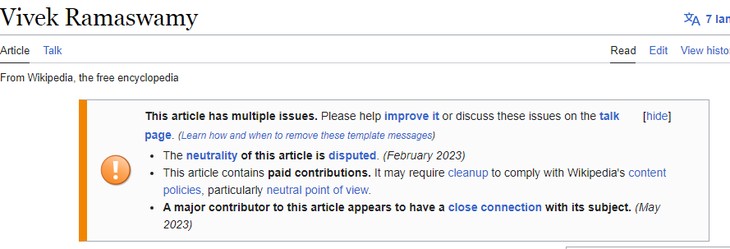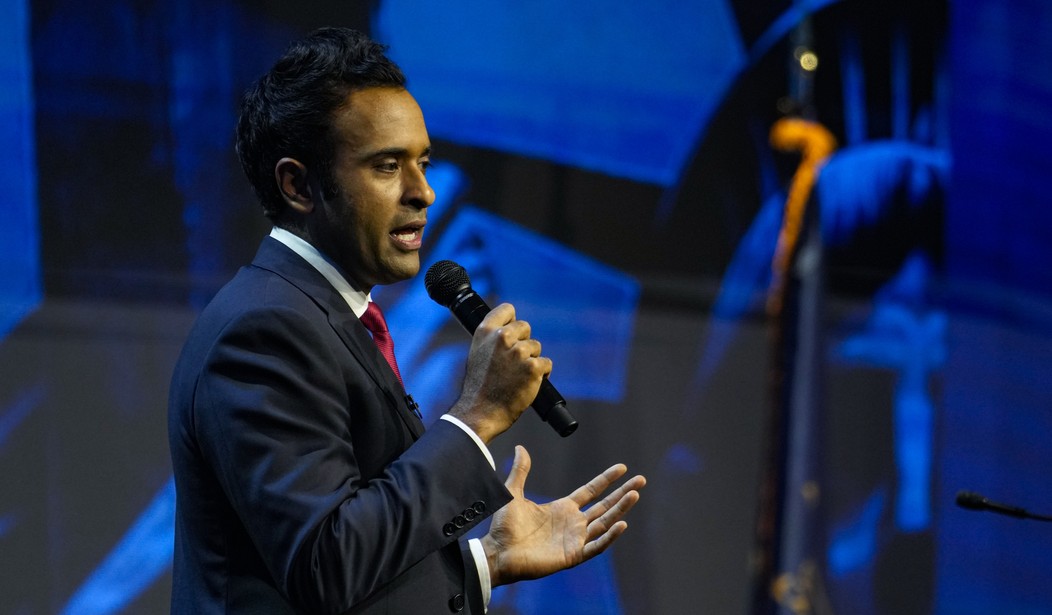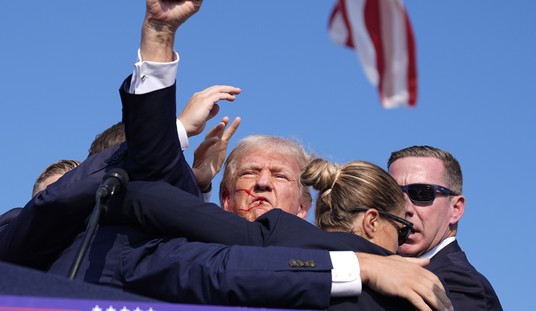Vivek Ramaswamy is all the latest rage among a certain subsection of the populist right as a youthful, diverse alternative to Trump.
For my taste, he’s entirely too polished and practiced to an extent that, seen in any politician, triggers an instinctive suspicion on my part regarding his trustworthiness — a suspicion which I refrained from elaborating on because it was just a feeling without any evidence.
Now, that evidence appears to have manifested in the form of a report that he paid a Wikipedia editor to remove references in his biography regarding two key issues that would not go over well with many of his supporters were they made public: his 2011 Paul & Daisy Soros Fellowship for New Americans and his role as part of Ohio’s COVID-19 Response Team.
Via Forbes:
Vivek Ramaswamy, an entrepreneur vying to be the Republican candidate for president in 2024, allegedly paid to change the Wikipedia page about him, according to a disclosure made on the community encyclopedia. The changes include scrubbing the fact that Ramaswamy received the Paul & Daisy Soros Fellowship for New Americans in 2011 and Ramaswamy’s role in the Ohio Covid-19 Response Team.
Anyone can make changes to Wikipedia articles, but it’s against the rules for anyone to edit an article about themselves. It’s within the rules to pay someone else to make changes on Wikipedia articles as long as those payments are disclosed.
The changes to the Wikipedia page, first reported by Mediaite, were made by a user named Jhofferman, who provided the disclosure on Wikipedia.
Ramaswamy’s Wikipedia page — which, like all pages on the site, crowdsource the writing and editing — currently has numerous flags citing issues with neutrality, paid contributions, and a suspected conflict of interest by a “major contributor” to the article.

On its own, a Soros fellowship over a decade ago and a role in crafting statewide COVID-19 policy are not necessarily indictments of Ramaswamy’s character or political viability. But, if true, the attempt to conceal this information from the public is. It would demonstrate a willingness to take unethical measures to hide potentially damaging information in the public interest from the public — not a good look for a relatively unknown political commodity hoping to establish a rapport with his party’s voting base.
Also, if Ramaswamy actually believed that, were he ever to ascend to an elite position within the Republican Party, his adversaries would never expose his Soros ties through oppo research simply because he scrubbed that information from his Wikipedia page, he is entirely too naïve about how this game is played to be trusted with political leadership.










Join the conversation as a VIP Member